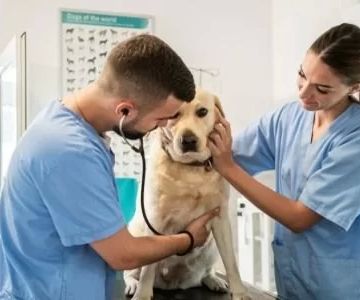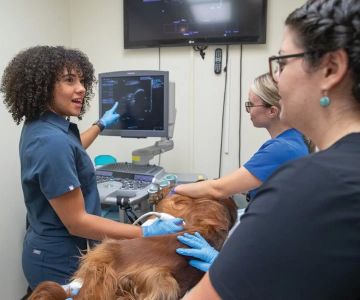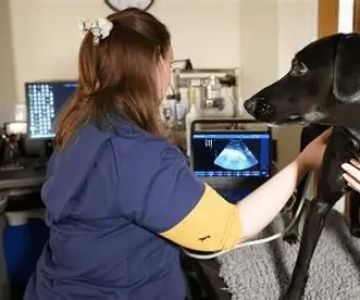What Subjects Are Needed for Veterinary School? A Guide for Aspiring Veterinarians
Becoming a veterinarian is a rewarding career choice for those passionate about animals and healthcare. However, it requires rigorous education and a strong foundation in various subjects to be successful in the field. If you’re wondering what subjects are needed for veterinary school, this article will guide you through the essential topics you need to study and prepare for before applying to a veterinary program. Whether you're just starting out or considering a career change, this information will help you understand the educational path to becoming a veterinarian.
- Pre-Veterinary Education Requirements
- Essential Science Subjects for Veterinary School
- Additional Skills and Subjects to Consider
- The Veterinary School Application Process
1. Pre-Veterinary Education Requirements
Before applying to veterinary school, students typically need to complete an undergraduate degree in a related field. While some schools offer direct-entry veterinary programs, most require a pre-veterinary education that includes coursework in core scientific subjects. Here’s a breakdown of the general requirements:
1.1 Bachelor’s Degree
Most veterinary schools require applicants to have a bachelor’s degree, usually in a science-related field such as biology, animal science, or chemistry. A strong academic record in undergraduate studies is crucial for acceptance into competitive veterinary programs. Some students also choose to major in fields such as zoology, biochemistry, or environmental science, as long as they cover the prerequisite subjects.
1.2 Required Coursework
While there is no single "pre-vet" degree, veterinary school applicants typically need to complete coursework in biology, chemistry, physics, and mathematics. These courses provide the foundation for understanding animal anatomy, disease processes, and the scientific principles that will be applied in veterinary practice.
2. Essential Science Subjects for Veterinary School
Veterinary science is a highly specialized field, and students need a deep understanding of a wide range of scientific concepts. Below are the essential science subjects that are required or strongly recommended for veterinary school applicants:
2.1 Biology
Biology is at the core of veterinary studies. Understanding the principles of biology, from cellular functions to animal behavior, is fundamental to diagnosing and treating animals. Pre-veterinary students should complete courses in general biology, microbiology, genetics, and animal biology. These courses will introduce you to the study of living organisms, which is essential for veterinary practice.
2.2 Chemistry
Chemistry is another critical subject for veterinary students. Courses in general chemistry, organic chemistry, and biochemistry are typically required as part of pre-veterinary education. These courses provide essential knowledge of the chemical processes that occur within animals' bodies, which is necessary for understanding how medications, vaccines, and treatments work.
2.3 Physics
While physics might seem unrelated to veterinary care, it is important for understanding concepts like biomechanics, radiology, and anesthesia. Courses in basic physics will help students understand the physical principles behind diagnostic imaging, surgeries, and the operation of veterinary equipment.
2.4 Mathematics
Mathematics is crucial for understanding dosages, measurements, and calculations related to animal care. Pre-veterinary students should take courses in algebra, calculus, and statistics. These subjects help with making accurate calculations for treatments, understanding data, and analyzing scientific results.
3. Additional Skills and Subjects to Consider
In addition to the core scientific subjects, there are other skills and subjects that are beneficial for aspiring veterinarians. While these may not always be required for admission, they can enhance a candidate’s application and make them more competitive:
3.1 Animal Husbandry and Behavior
Understanding animal behavior and how to care for animals in a variety of settings is critical for any veterinarian. Some schools recommend courses in animal husbandry, ethology (the study of animal behavior), and animal handling. These subjects will give you insight into how animals interact with each other and their environment, which is essential for providing effective care.
3.2 Communication Skills
Veterinarians must communicate effectively with pet owners, staff, and colleagues. Strong communication skills, including both verbal and written, are essential for explaining diagnoses, treatment plans, and procedures. You can develop these skills through courses in English, public speaking, or by engaging in volunteer work that involves interacting with the public.
3.3 Veterinary Technology
While veterinary technology courses may not always be required, gaining some hands-on experience with the tools and techniques used in veterinary practices can be beneficial. Volunteering or working in an animal clinic will provide practical knowledge and experience, which can strengthen your application and better prepare you for veterinary school.
4. The Veterinary School Application Process
The application process for veterinary schools can be highly competitive. In addition to the required coursework and degrees, most veterinary schools also require standardized test scores, such as the Graduate Record Examination (GRE), letters of recommendation, and relevant work experience in animal care. Some schools also look for extracurricular activities that demonstrate your passion for animals and your commitment to the field.
4.1 Gaining Experience
Experience is one of the most important factors in the veterinary school application process. Volunteering at animal shelters, working with veterinary technicians, or gaining hands-on experience in animal clinics can help you stand out as a candidate. This experience will give you practical insights into the profession and show admissions committees your dedication to animal care.
4.2 Preparing Your Application
When preparing your application, be sure to highlight your academic achievements, relevant experience, and passion for the field. Take the time to write a personal statement that demonstrates your commitment to becoming a veterinarian and how your background has prepared you for this challenging and rewarding career.
With dedication and the right academic preparation, you can set yourself on the path to becoming a veterinarian. If you’re looking for additional guidance or resources to help with your veterinary journey, consider visiting Hidden Brook Veterinary for expert advice and support.











